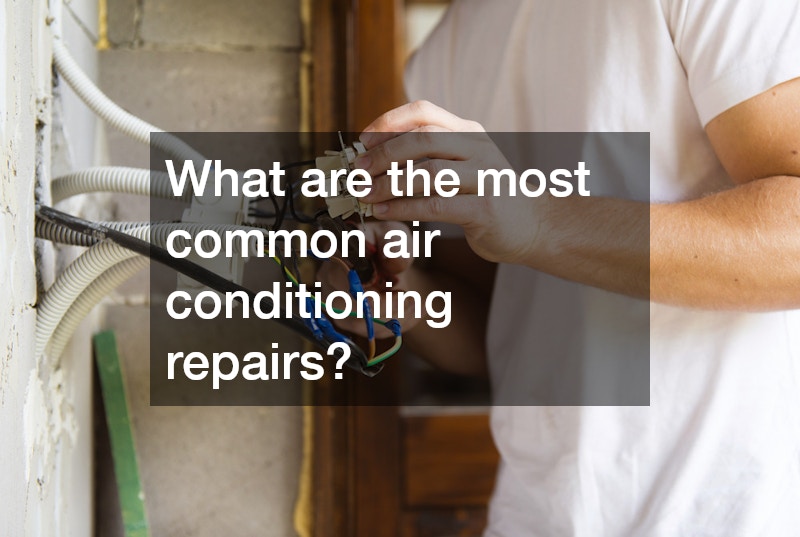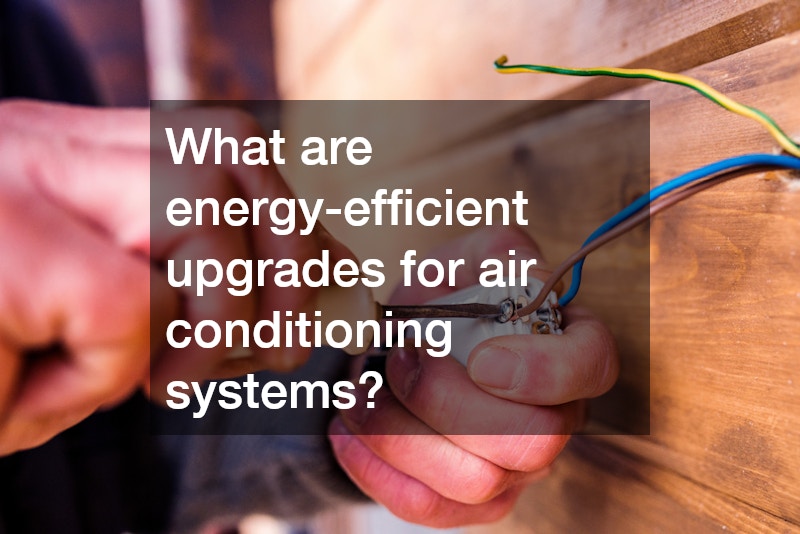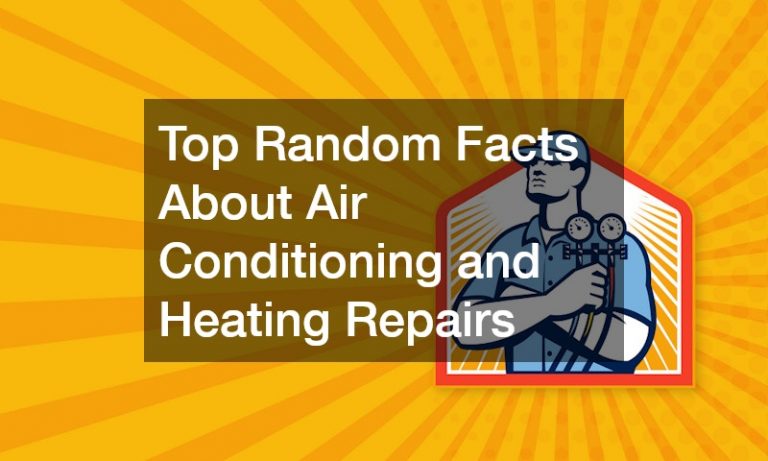Air conditioning and heating systems are essential to maintaining comfort in our homes throughout various seasons. Knowing key facts about air conditioning can help you make informed decisions regarding the maintenance and repair of these critical systems. This article provides fascinating insights into how these systems operate and the common repairs associated with them, as well as energy efficiency tips and maintenance advice.
Many homeowners don’t realize just how much their HVAC system affects their overall comfort and energy bills. The efficiency of these systems can determine not only how well your home stays cool in the summer and warm in the winter but also how much you pay in utility costs. Regular maintenance can extend the lifespan of your unit, prevent costly breakdowns, and improve overall air quality inside your home.
One surprising fact about air conditioning is that it doesn’t actually “cool” the air in the way most people think. Instead, it removes heat and humidity from the indoor environment, creating a comfortable atmosphere. Similarly, heating systems don’t just add warmth; they distribute it efficiently to maintain consistent temperatures throughout your space.
What are the most common air conditioning repairs?

A variety of issues can lead to the need for ac repair, with some of the most common being refrigerant leaks, electrical control failure, and sensor problems. Refrigerant leaks not only reduce the efficiency of your air conditioning system but can also cause damage to the environment. Electrical issues often arise from corroded wires or components, emphasizing the importance of regular maintenance to ensure safe operation.
Sensor problems can occur in air conditioners that feature a thermostat sensor. When this sensor is knocked out of position, the air conditioner can cycle constantly or erratically, which calls for professional AC repair. Understanding these facts about air conditioning systems can lead homeowners to identify issues early, avoiding further damage and costly repairs.
An ac repair contractor is often called to address problems related to drainage and clogged filters. Proper drainage is essential to preventing water damage and the growth of mold within the system’s components. Timely filter cleaning or replacement can significantly enhance air quality and system efficiency, highlighting one of the simple yet crucial facts about air conditioning maintenance.
How do seasonal changes affect air conditioning and heating systems?
Seasonal changes have a profound impact on the operational demand placed on air conditioning and heating systems. During hot summer months, cooling systems are under significant strain, leading to potential wear and tear that often requires the expertise of an ac repair contractor. Conversely, heating systems face similar challenges during freezing winter temperatures, which can result in unexpected breakdowns and repairs.
One of the overlooked facts about air conditioning is that seasonal transitions from heating to cooling and vice versa can expose weaknesses in a system. Fluctuations in temperature and usage can stress components, underscoring the need for a thorough check-up by professionals between seasons. Proactive seasonal maintenance can help avert costly breakdowns and maintain the system’s efficiency and reliability throughout the year.
Understanding how such transitions affect HVAC systems is key to ensuring their longevity and effectiveness. Whether it’s calling on a local sewer cleaning service to handle mishaps affecting indoor air quality in humid months or addressing the heating components’ adequacy during cold snaps, each season brings with it specific challenges. Homeowners benefit significantly from a seasonal maintenance approach, averting multiple ac repairs and sustaining system performance.
How can regular maintenance prevent costly repairs?
Regular maintenance plays a crucial role in preventing a costly AC system repair by addressing issues before they escalate. Simple tasks, such as filter cleaning, refrigerant checks, and coil cleaning, significantly boost the system’s efficiency and lifespan. Homeowners who adhere to routine maintenance schedules often experience fewer breakdowns and enjoy lower energy costs.
Hiring an AC repair contractor for regular inspections can uncover potential problems like worn-out components or electrical issues. By doing so, you can address these issues promptly and ensure that your air conditioning units operate at peak performance. Ensuring the system is in good working order keeps energy bills lower and postpones the need for major replacements, a key fact about air conditioning that saves both money and environmental resources.
Scheduled maintenance can prevent major disasters, such as system failures during peak usage seasons, which often result in rushed, expensive repairs or replacements. Much like a local sewer cleaning service, regular HVAC maintenance involves cleaning and clearing blockages that might reduce efficiency. By circumventing larger problems through preventive care, you maintain a comfortable home environment without breaking the bank on unexpected repairs.
What are energy-efficient upgrades for air conditioning systems?

Energy-efficient upgrades for air conditioning systems are key to reducing both operational costs and carbon footprints. Installing programmable thermostats is one of the simplest and most effective means of managing home temperature settings efficiently. Homeowners can schedule their HVAC systems to run only when needed, reducing unnecessary energy consumption.
Replacing old, outdated units with modern, high-efficiency models is another significant upgrade that can lead to lower energy bills. Modern systems often come with SEER (Seasonal Energy Efficiency Ratio) ratings, which provide an indicator of a unit’s energy efficiency. Understanding and choosing units with higher SEER ratings is a critical fact about air conditioning systems that can result in substantial energy savings.
Regular duct inspections and repairs, akin to septic repair in essentiality, are crucial to ensuring energy efficiency by eliminating leaks that traditionally waste heated or cooled air. Addressing these airflow issues promptly enhances overall system efficiency and comfort levels within the home. Investing in energy-efficient upgrades not only lessens environmental impact but also fosters long-term savings.
How does air quality impact HVAC performance?
Air quality significantly affects HVAC performance, as pollutants and particulates can clog system components, reducing efficiency. Airborne particles can accumulate within filters and ducts, forcing systems to work harder and often leading to higher energy usage. Regular cleaning and maintenance ensure that systems run smoothly, with optimal air quality promoting better overall HVAC performance.
Addressing air quality issues is akin to visiting a carpet store for new flooring—it’s about maintaining a fresh and clean environment. Dirty components can degrade air quality, impacting not only system performance but also the health of the home’s occupants. Employing air purification solutions alongside HVAC systems can enhance air quality and boost the system’s longevity and efficiency.
Seasonal changes, especially pollen spikes and increased humidity, can further challenge an air conditioning system’s efficiency. Being proactive about air quality management is a key fact about air conditioning that ensures performance during such times. Homeowners can see quantifiable improvements in both air quality and energy expenses by routinely investing in air quality maintenance and solutions.
What are the signs of an inefficient heating system?
An inefficient heating system often exhibits signs such as uneven heating, frequent cycling of the unit, and sky-high energy bills. Weak airflow and cold spots throughout the home usually indicate underlying issues that need professional assessment. Identifying these problems early can prevent more extensive, costly repairs down the line.
Strange noises, such as banging or clunking, could signal internal malfunctions within the heating components. These sounds often point to parts wearing out and signal a need for immediate inspection and possible repair. Much like septic maintenance, routine check-ups for a heating system can prevent sudden breakdowns by addressing these inefficiency signs promptly.
System age is another indicator of inefficiency; older systems that require frequent repairs may no longer run cost-effectively. Upgrading can often be more economical in the long run. Effective understanding of these facts about air conditioning and heating aids in determining when repairs are prudent or when replacement becomes a more viable option.
What should one consider when replacing an old HVAC system?

Replacing an old HVAC system requires careful consideration of several factors, including size, energy efficiency, and installation costs. A system that is too large or too small could result in inadequate heating or cooling, leading to increased wear and tear. Seeking assistance from professionals offering electrical services ensures the new system is a precise fit for the home’s requirements and power capacities.
Another critical factor is the energy efficiency of the new system. Opting for models with high energy efficiency ratings, like those with high SEER ratings, can lead to significant energy savings. Investing in advanced energy solutions is a smart financial decision that also contributes positively to the environment.
Installation should only be conducted by licensed and experienced technicians. A properly installed system maximizes performance and longevity, ensuring the investment is worthwhile. Homeowners should consider the future impact of the new system alongside immediate benefits, with these facts about air conditioning and heating underpinning long-term comfort and efficiency.
What role does ductwork play in heating and cooling efficiency?
Ductwork is a crucial component of HVAC systems, directing and distributing conditioned air throughout a home. Any leaks, obstructions, or poorly designed ductwork can greatly reduce system efficiency, leading to uneven air distribution and higher energy costs. Regular duct inspections and maintenance are necessary to ensure optimal performance.
Improper duct installation can result in energy losses of up to 20%, underscoring one of the significant facts about air conditioning that concerns homeowners. Ensuring ducts are properly sealed and insulated mitigates energy waste and boosts the system’s overall efficiency. A skilled plumber or specialist is often needed to assess and correct ductwork issues, optimizing airflow within the home environment.
Investing in duct upgrades or repairs can lead to immediate improvements in HVAC system efficiency and home comfort levels. Well-maintained ducts contribute to quieter and more accurate temperature regulation across all rooms. As such, understanding the crucial role ductwork plays in an HVAC system is essential for maintaining efficiency and reducing operational costs.
How can homeowners reduce their HVAC-related carbon footprint?
Homeowners can take several steps to reduce their HVAC-related carbon footprint, starting with regular maintenance to ensure systems run efficiently. Poorly maintained systems consume more energy, making regular inspections and care an essential measure in reducing emissions. Simple actions like changing filters regularly can make a significant difference.
Installing modern, energy-efficient systems represents an effective way to lessen the environmental impact of heating and cooling. By opting for products with recognized energy ratings, homeowners support sustainable solutions while lowering their energy expenses. Understanding such facts about air conditioning is pivotal in encouraging energy-conscious decisions that benefit both wallets and the planet.
Incorporating alternative energy sources, such as solar power, further reduces dependency on fossil fuels. Exploring options like solar-powered hot water heaters can drastically cut down the home’s overall carbon footprint. These proactive steps not only promote environmental health but also foster a more sustainable and economically efficient home.
Are there DIY solutions for minor HVAC issues?

While significant HVAC repairs should be left to professionals, there are several minor issues homeowners can handle themselves. For instance, replacing filters regularly is a simple task that improves efficiency and air quality. Keeping the external unit clear of debris is another straightforward measure that ensures optimal airflow and performance.
Understanding basic maintenance, such as resetting tripped circuit breakers or checking thermostat settings, can prevent unnecessary AC system repair. Homeowners can manage simple tasks without specialized tools, saving time and cost by addressing minor issues promptly. However, understanding one’s limits and knowing when to call for professional help are critical knowledge points.
DIY solutions can also include sealing small duct leaks or replacing faulty thermostats. While these tasks require basic tools, they can lead to noticeable improvements in system efficiency. Leveraging knowledge of these manageable adjustments emphasizes the importance of quick wins in HVAC care, providing comfort and functionality at no excessive cost.
Using These Facts About Air Conditioning
Understanding the various facets of air conditioning and heating repair can greatly enhance a homeowner’s ability to maintain a safe, efficient, and comfortable living environment. By respecting the essential facts about air conditioning systems and their operation, one can proactively uphold system efficiency and durability. Regular maintenance and energy-conscious upgrades ensure these indispensable home systems provide optimal performance while protecting both investments and the environment. Investing time and resources into HVAC care enhances home value and sustainability, rewarding homeowners with comfort and peace of mind.
